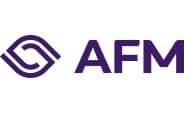This news is older than 3 years. Therefore it is possible that the information is no longer valid.

AFM argues for greater clarity and practicability of international standards for sustainability reporting
The Netherlands Authority for the Financial Markets (AFM) is responding to consultations for new international and European standards for sustainability reporting from ISSB and EFRAG. AFM advocates the further improvement of definitions and alignment with existing standards; the scope and complexity in the current concepts are hindering
In brief
• Better alignment with one another and with other standards to improve international comparability
• ISSB proposals still give too little consideration to impact of business itself on environment
• Proposals for European standards are more complete yet overly detailed
• Complex regulations impede applicability and increase possibilities of greenwashing
The IFRS Foundation’s International Sustainability Standards Board (ISSB) consulted new regulations geared towards enhancing the relevance and comparability of sustainability reporting internationally. The European Financial Reporting Advisory Group (EFRAG) consulted these standards focusing on sustainability reporting at European level. AFM supports these initiatives
Better alignment with one another and with other standards to improve international comparability
In terms of the proposals for both the ISSB and EFRAG standards, AFM is urging better alignment with one another and with existing (international) standards in order to deliver consistency and comparability in sustainability-related information.
ISSB proposals still give too little consideration to impact of business itself on environment
As things currently stand, the ISSB proposals primarily focus on the positive and negative consequences of sustainability issues on enterprise value (and value creation), specifically related to the climate-related risks and opportunities. In this regard, too little attention is being given to the impact that a business itself has on its environment. Moreover, the current proposals do not factor in the two other ESG criteria ‘social’ and ‘governance’. Nor do they define the term ‘sustainability’.
Proposals for European standards more complete yet overly detailed
The European draft standards from EFRAG do consider so-called ‘double materiality’, including both the sustainability-related risks and opportunities for enterprise value (and creation) as well as the impact that the business’s activities are having on people, the environment and society. EFRAG is fleshing out the standards into 11 separate sustainability topics. In addition to environmental topics, these also include social and governance topics. AFM is concerned about the scope and complexity of the EFRAG standards and suggests reducing the level of detail, while avoiding any detrimental effect on relevance and comparability.
Complex regulations impede applicability and increase possibilities of greenwashing
AFM highlights the risk that the reporting requirements will result in overloaded reports. Users of the information may not be able to see the wood for the trees. It also makes the regulations less readily applicable for businesses and could result in high costs. Furthermore, the regulations are harder for accountants and regulatory authorities to audit and enforce. Which increases the risk of greenwashing.
Contact for this article

Would you like to receive the latest news from AFM?
Subscribe to our newsletter, we will keep you up-to-date.